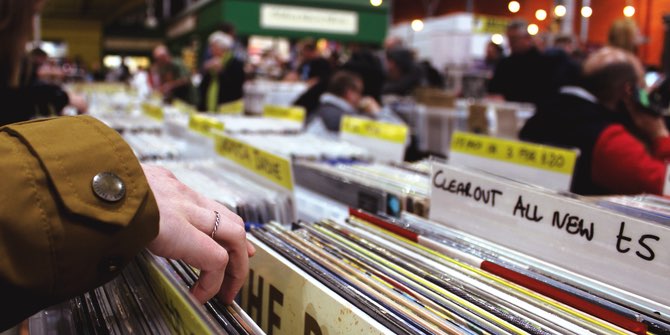If you're reading this, you have a nearly limitless world of digital wonders available to you. Books, music, movies, all available on your screen, many of them available entirely free, aside from the cost of your internet service. It sounds great, and in a lot of ways it is.
That said, as with most everything, this avalanche of digital entertainment options isn't without its downsides. While we have more options at our fingertips than ever before, it's important to take a step back and consider the effects they have on us, both good and bad.
Information Overload
It's easy to forget or stop noticing all the extraneous noise we're exposed to when we look at pretty much anything with a screen. Browse the web and you're inundated by advertising, turn on your game console and you see ads for other games as well as movies and other sorts of entertainment.
You might decide to read a book, but whether you're using an app on your tablet or a dedicated e-reader like a Kindle, you're going to be bombarded with ads for other books. Even when you don't see ads, there are plenty of other things vying for your attention.
Ever launch Netflix only to turn it off a half-hour later without watching anything because there are too many options? That overwhelming amount of options is quickly popping up everywhere.
What About Your Health?
You've also got to consider your health. There are plenty of studies and research showing that the "blue light" that comes from the screens we look at for hours a day is keeping us awake at night. Companies are slowly starting to adjust to this, but light isn't the only health concern when it comes to looking at screens all day.
Unless you're extremely disciplined, using a screen that isn't your TV probably means notifications and distractions. With smart TVs, you're not even guaranteed to be able to get away from these when you kick back with a movie.
Whether you notice them or not, these are likely wearing you out mentally. For some people, this may not mean much. For others, however, it can mean increased stress, anxiety, and other mental health issues.
Of course, reducing the amount of time you spend with digital entertainment isn't all about your health either. Sometimes it's about connecting with the past.
Sometimes Older Is Better

For people like me, there's something almost ethereal about listening to a vinyl record. It's knowing that the sound you're hearing is coming from something physical, not digital bits. It's the vibration caused by the movement of the needle on the tiny bumps in the grooves of the record, being picked up by a tiny cartridge, then amplified and played through the speakers.
It doesn't have to be about music either. There's something to reading a paper book or even a magazine (remember those?) that can help you connect to the words you're reading on a deeper level, even if there's no rhyme or reason as to why.
As long as humans have existed, we've been amusing ourselves in one way or another, but only in recent decades have we begun to rely more and more on screens for this. Even if the health risks end up being a smaller issue than we may think, for history's sake alone, it's worth looking away from screens for a while and paying attention to what else is going on around you.
Tips for Non-Digital Entertainment
If you've been down the technological rabbit hole for too long, it can be tough to think of something to do that doesn't involve a screen. One of the first things to do is take a step outside, assuming your circumstances allow it. If you're at a loss for outdoor activities, we've got some options for you.
What if you want to stay indoors or can't go outside right now? You could read a book or, if you're up for something more active, play a board game. It doesn't even matter if you're alone: take a look at our list of awesome single-player board games.
